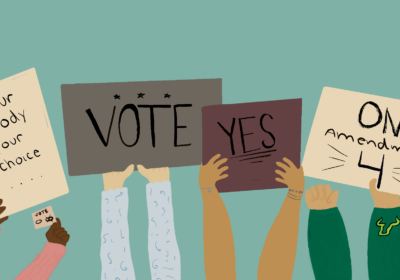However absurd, opinions should still be protected
When National Public Radio (NPR) news analyst Juan Williams was fired last week for remarks he made on “The O’Reilly Factor” about Muslims, the act sparked national controversy and called First Amendment issues into question.
While being interviewed by Bill O’Reilly, the political cable show’s host, Williams was asked to provide his opinion on the “idea that the U.S. is facing a dilemma with Muslims,” according to NPR’s website.
“Look, Bill, I’m not a bigot,” Williams said. “But when I get on the plane, I got to tell you, if I see people who are in Muslim garb and I think, you know, they are identifying themselves first and foremost as Muslims, I get worried. I get nervous.”
Vivian Schiller, NPR’s president and CEO, said in an Atlanta Press Club luncheon that she relied on Williams to provide his perspective on news but not his opinion. Journalists and analysts on NPR must follow journalistic rules of ethics in any forum or venue, she said.
Though his remarks were ignorant, inflammatory and irresponsible, Williams did have the right to speak his mind – a right that is protected by the First Amendment of the Constitution.
The amendment does not draw a distinction between regular citizens and journalists, and neither should NPR. According to CNN, Williams said NPR fired him because of his constant appearances on Fox News, rather than his remarks, and described his former employers as “self-righteous, ideological, left-wing.”
Furthermore, Williams’ remarks to O’Reilly expressed fear more than his opinions. It is a fact that on Sept. 11 the U.S. was attacked mercilessly by radical terrorists claiming to be Muslims. The whole religion need not be blamed, just like all Christians should not be blamed for sexual abuses perpetrated by Catholic priests on children. Nonetheless, an expression of fear is justifiable.
Americans need to exercise free and open discussion, even though it may step on someone else’s toes.
How many times do you see presidential nominees talking negatively about their opponents, bashing their policies and ideologies? Tea parties are a perfect example, yet we do not see Sarah Palin getting fired over her critiques of President Barack Obama.
Freedom of speech is not limited to a handful. It is a right of every American citizen.
If Williams was outside of NPR’s ethical code, they should have asked him to apologize instead of removing him from his position. Political correctness is not necessary in every situation, especially when you are asked to share your opinions.
The action could cast NPR as hypocritical, considering the fact it is funded by the government and yet refuses to recognize the Constitution.
Zahira Babwani is a senior majoring in biomedical science.






